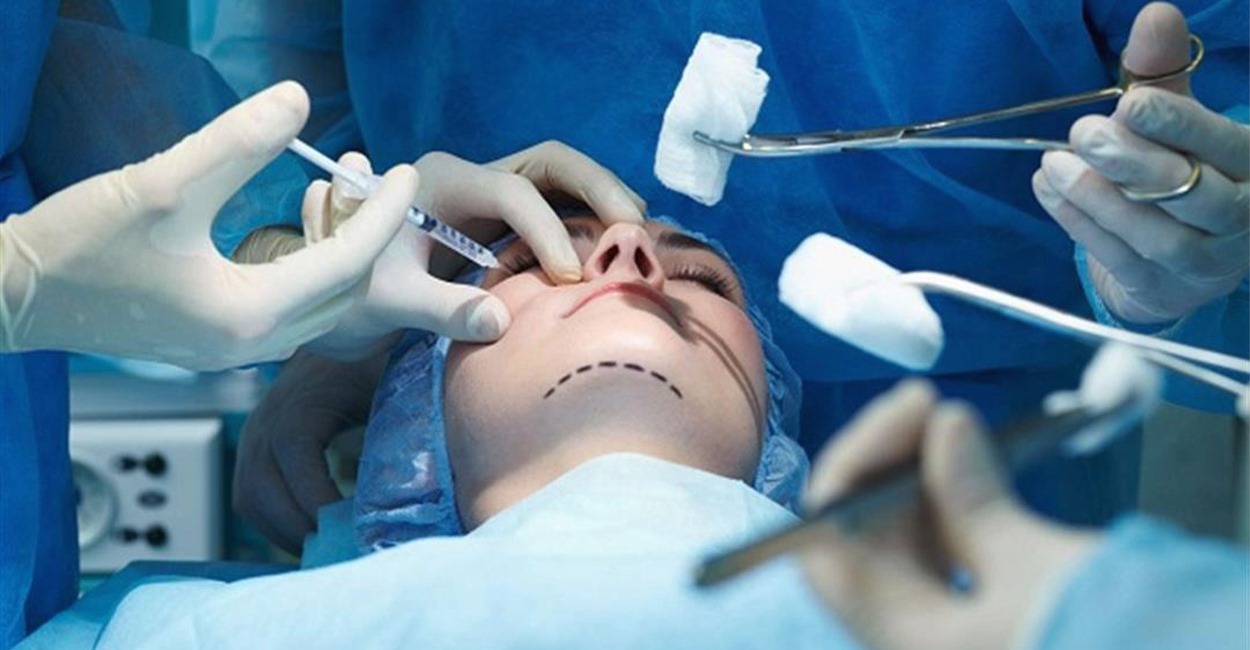New rules for beauty: Iraq tightens regulations for cosmetic procedures

Shafaq News/ Iraq's cosmetic industry has experienced a significant surge since 2003, with numerous centers initially offering cosmetic and orthodontic services. However, this boom has attracted unqualified individuals, notably dentists, to enter the lucrative market, prompting a response from authorities.
Regulatory Response
In response, the Ministry of Health and Environment issued stringent regulations to limit the practice to qualified professionals.
On May 6, the Iraqi Ministry of Health announced a ban on dentists performing mesotherapy, fillers, Botox, and other cosmetic injections in all centers.
According to a ministry document obtained by Shafaq News Agency, "The minister has approved the cancellation of the letter from the Specialized Centers Authority / Development and Scientific Research Department, numbered 54500 on September 16, 2021, directed to the Dental Association. The ministry's regulations prohibit all dentists from injecting fillers, Botox, mesotherapy, or other substances used in cosmetics, such as stem cells and exosomes, in accordance with the regulations."
Dentist's Perspective
Dentist Takbeer Al-Jubouri states, "Dentists are not allowed to open cosmetic centers, but they are allowed to operate clinics and perform non-surgical cosmetic procedures on the lower and middle thirds of the face, in accordance with the Iraqi Ministry of Health regulations. The current disorder stems from cosmetic centers supervised by plastic surgeons and dermatologists but staffed by unlicensed beauticians or salon owners. Therefore, the work of dentists is legal and unrelated to the ongoing chaos."
She points out to Shafaq News Agency, "A cosmetic center differs entirely from a clinic. Clinics receive approval from the Dentists Syndicate, while cosmetic centers require approval from the Ministry of Health and are exclusively licensed for plastic surgeons and dermatologists. Consequently, a dentist cannot open a large cosmetic center unless they are an investor who has obtained a license from a dermatologist or plastic surgeon."
Al-Jubouri adds, "Officially licensed cosmetic centers in Iraq are under the supervision of specialized dermatologists or plastic surgeons. However, some have rented out their centers to beauticians and salon owners who then administer injections, contributing to the current disarray."
She points out that despite the work of dentists being legal under ministerial orders since 2018, work has been halted due to the recent decision, "even though these procedures are part of a dentist's job."
Inspection Campaign
The Iraqi Ministry of Health announced a major inspection campaign targeting cosmetic centers in Baghdad.
According to a statement from the ministry, ministerial teams from the Inspection Department's Private Health Institutions Section and the Public Health Department conducted an extensive inspection campaign to monitor cosmetic centers in Baghdad.
Director General of the Inspection Department, Sabah Nouri Al-Khazali, stated that the campaign, which targeted many cosmetic centers in different districts of Baghdad, "closely monitored the requirements for opening these centers, including professional practice licenses, compliance with health standards, infection control measures, staff credentials, the validity of medical materials and supplies, the quality of medical equipment, safety requirements, and civil defense procedures."
Concerns and Actions
On May 20, Majid Shingali, Chairman of the Parliamentary Health Committee, forwarded a list of 17 cosmetic centers to the Iraqi Ministry of Health for verification of their licensing status.
A document obtained by Shafaq News, sent from Shingali to the Ministry of Health, requested confirmation regarding the licensing status of these centers as cosmetic facilities. The document also sought copies of these licenses to be provided to the committee.
Speaking about this request, Shingali tells Shafaq News, "We requested initial information to determine whether these centers are licensed or not in order to take appropriate follow-up actions. There have been complaints about some centers employing unqualified individuals who perform procedures like filler and Botox injections."
He underscores that "the Ministry of Health, through its Inspection Department and branches in the different governorates, has shuttered more than 100 cosmetic centers in the past three months, and this process continues. However, public cooperation and awareness regarding the risks associated with these centers are essential. Furthermore, certain hair salons are performing procedures resembling non-surgical interventions such as fillers and Botox. Violators will face closures, but those seeking to open licensed cosmetic centers can do so in accordance with the Ministry of Health's regulations and guidelines."
Despite this growth in cosmetic centers, the Iraqi Medical Association has identified hundreds of "fake and unlicensed" cosmetic centers, particularly in various areas of the capital, Baghdad.
Official Licenses
Dr. Hasanin Safaa Shabbar, chairman of the Iraqi Medical Association, highlights the prevalence of unlicensed cosmetic centers in Iraq, estimating that the officially licensed ones by the Ministry of Health are limited to around 105.
He revealed to Shafaq News that the unauthorized centers are managed by medical or non-medical personnel, which "pose serious health risks and disrupt medical standards."
Regarding the specialized field of cosmetic clinics, Shabbar emphasizes that plastic surgery is the appropriate specialty.
"While some procedures are labeled as cosmetic, they do not fall under true cosmetic surgeries but rather non-surgical interventions within the domain of plastic surgeons and dermatologists."
Shabbar discusses the recent involvement of dentists in cosmetic procedures, noting that such endeavors require careful professional considerations and adherence to scientific decisions and advisory committee guidelines set by the Medical Association.
He criticizes the commercial use of the term "cosmetic," cautioning that its misuse can lead to complications and health hazards for clients, urging for more stringent oversight in the industry.





